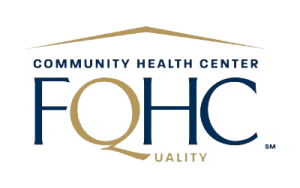SCREEN IT LIKE YOU MEAN IT!
Who do you screen for?
What is Cancer?
Cancer is a disease where abnormal cells in the body grow uncontrollably and can form tumors or spread to other parts of the body. It occurs when the normal regulatory mechanisms of cell growth and death are disrupted. Cancer is typically named after the organ or tissue where it begins, even if it spreads to other areas.
What Can You Do to Prevent Cancer or Detect It Early?
To reduce your risk of cancer it’s important to adopt a healthy lifestyle, including avoiding tobacco, limiting alcohol consumption, maintaining a healthy diet, exercising regularly, and protecting yourself from harmful UV exposure such as the sun. Vaccines, like the HPV vaccine, can also help to prevent certain types of cancer. Additionally, regular check-ups, such as mammograms, colonoscopies, and skin checks, can help detect cancer early when it is most treatable. This process is referred to as cancer screening.
Screening for Cancer Can Save Your Life!
Cancer screening refers to the process of testing for cancer in individuals who do not have symptoms, with the goal of detecting cancer before it has progressed and when it is more treatable. Consistent, routine cancer screenings can help detect breast, cervical, and colorectal cancers early which can significantly improve the chances of successful treatment and survival.


FHCSO is Here to Help!
Talk to your FHCSO healthcare team to determine if any annual cancer screenings are appropriate for you. Your provider can explain the different screening options and help you decide which one is best for you.
Cancer screenings are covered by many health insurance plans with little to no out-of-pocket costs, although this may vary based on your individual policy. If you are underinsured or uninsured and require colorectal, cervical, or breast cancer screenings, FHCSO may be able to assist you in accessing screenings at no cost or a reduced fee through partnerships with other organizations and our sliding fee scale.

col0rectal Cancer
What is Colorectal Cancer?
Colorectal cancer is a type of cancer that begins in the colon or rectum, which are parts of the large intestine. It typically starts as small, benign growths called polyps, which can eventually turn cancerous over time. Symptoms might include changes in bowel habits, blood in the stool, unexplained weight loss, and abdominal discomfort.
How is Colorectal Cancer Screened?
Colorectal cancer screening involves two different types of tests:
Stool-Based Test
A kit is sent to your home where you collect a stool sample at home and send it to a laboratory for analysis on blood and/or any abnormal DNA.
Colonoscopy
A flexible, thin, single-use lighted tube is inserted so that a doctor can internally examine the rectum and colon for the presence of polyps or cancer.
What Age Group Should Screen for Colorectal Cancer?
Any age group can be affected by colorectal cancer. Additionally, you should be screened for colorectal cancer more regularly if you’re 50-75 years old.
Cervical Cancer
What is Cervical Cancer?
Cervical cancer is a type of cancer that develops in the cervix, the lower part of the uterus that connects to the vagina. It typically starts as abnormal changes (called dysplasia) in the cells of the cervix, which may progress into cancer over time if not detected and treated early.
How Do You Screen for Cervical Cancer?
Screening for cervical cancer involves tests that help detect abnormal changes in the cells of the cervix before they turn into cancer. The two main methods for screening are:
Pap Smear Test
This test involves collecting a sample of cells from the cervix during a pelvic exam that are then examined for any abnormalities.
HPV Test (Human Papillomavirus)
The HPV test checks for the presence of high-risk types of HPV, a virus that can lead to cervical cancer. Similar to the Pap smear, a sample of cells from the cervix is collected and sent for examination.
When to Screen for Cervical Cancer?
It is recommended that you begin consistent Pap Smear screening starting at age 21; this is recommended even if you are not sexually active.
For women aged 21-29: Pap smear every 3 years. HPV testing is generally not recommended unless needed after abnormal results, but co-testing may be recommended by your doctor based on risk or family history.
For women aged 30-65: Pap smear and HPV test every 5 years (preferred) or Pap smear alone every 3 years. These may be also be co-tested.
After age 65: Screening may stop if a woman has had consistent normal test results for several years. However, some women with risk factors (such as a history of cervical cancer or a weakened immune system) may need to continue screening.


Breast Cancer
What is Breast Cancer?
Breast cancer is the production of abnormal cells in the breast that replicate over time and typically form a lump or mass. While initially they form within the breast, these cells can metastasize—or spread—to other parts of your body. Though it is more common in women, it can also occur in men.
What is Breast Cancer Screening?
Breast cancer screening is generally performed through two types of tests:
Mammogram
An X-ray of the breast that can detect small tumors or abnormalities that are too small to be felt during a physical exam. This is the best way and easiest way to detect breast cancer in its early stages.
Breast MRI
Using magnets and radio waves to take images of the breast to determine if there are abnormalities present, this is the most comprehensive method of screening. MRIs are used for women who are at an even higher risk for breast cancer as they can detect cancers that may not show up on mammograms.
When Should I Screen for Breast Cancer?
Women who are between the ages of 40 to 49 should talk to their doctor about how frequently they should screen for breast cancer. For those who are 50 to 74 years of age, it is generally advised to be screened every 2 years. For men, screening is not routinely recommended, but it may be advised for those at higher risk due to specific factors.
If you have any further questions, our cancer screening specialists are here to help. Please call us at
(580) 371-2343 for more information or to schedule an appointment for cancer screening.

